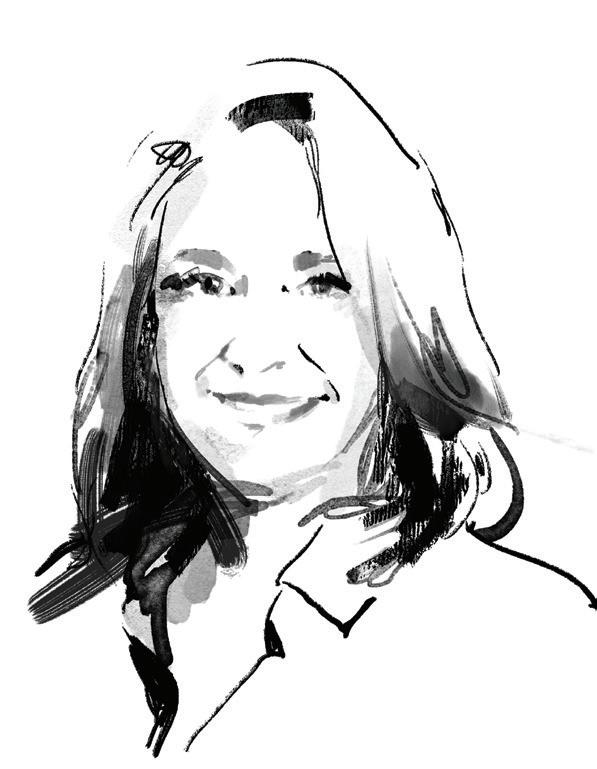Legacy Giving

Impact Report
THE ELIOT SOCIETY
The Eliot Society is a group of committed supporters who have informed the college of their intention to name Reed as a beneficiary in their will or trust or who have made a planned gift to the college. This tradition of generosity reaches back to Reed’s roots—the college itself was established through a bequest from the estates of Simeon and Amanda Reed in 1908.
The Eliot Society is named for Thomas Lamb Eliot, who first suggested to Simeon and Amanda that they use their financial resources to found an institution of learning in Portland. Eliot chaired the five-member board of trustees that organized Reed College and set it on course to become the preeminent liberal arts and sciences college it is today.
Over 600 alumni, parents, and friends of Reed are members of the Eliot Society. Members are honored guests at college events and receive periodic information from the college about charitable planning or tax and estate law changes. Reed honors all donor requests for anonymity.
By naming Reed as a beneficiary of your estate plan or by establishing a life income gift, you make a commitment to the college that reflects your aspirations for Reed’s future, just as Simeon and Amanda Reed did when they made plans for the college in their will.


Eliot Society members make a commitment to the college that reflects their aspirations for Reed’s future.
A MESSAGE FROM KATHY
F or generations, bequest donors have entrusted Reed with their hopes and dreams for the college’s future. As an Eliot Society member, you have done so, too.

Long after I’ve retired, charitable bequest intentions will be carried out by future college administrators whose only guide will be what donors have set forth in writing. Documenting dreams is not always simple; nor is interpreting them. As Hum 110 instructs, the challenge is steering between the Scylla of over-proscribing and the Charybdis of under-proscribing.
The over-proscribers tend to do things like leave millions of dollars to cover modest expenditures— like an annual fencing tournament or the acquisition of French books. They may endow a professorship in industrial pedagogy in 1922 that has everyone scratching their heads about how to administer this in 2022.
By contrast, under-proscribers tend to leave funds to the college’s general endowment or remain silent about their intentions, in which case, their bequests are applied to the best and highest needs at the time. In 2020, the highest needs were COVID-19 testing and retooling our residential campus to continue operating in person during the pandemic.
As an administrator, I tend to favor the underproscribers because the future likely has a few more global pandemic-equivalents up its sleeve. But as an individual, I feel strongly that donors should be able to express their intentions with a level of specificity that reflects their hopes and dreams and, when

doing so, should have every confidence that those intentions will be carried out.
This brings me to the mailings that you occasionally receive from my office asking you to let us know your bequest intentions. I suspect for some of you, this may feel intrusive; my aim is not to pry but to try to ensure that your hopes for your gift will be realized. With this in mind, if you have not already done so, I heartily encourage you to communicate your vision—for Reed’s future administrators, but moreso for yourself. The process of setting it down— which often invokes intense memories of one’s time at Reed, reflections on the curious turns in one’s life, and clarity around what matters—can be deeply meaningful in and of itself.
As inspiration, in the following pages, we have endeavored to track the guiding language of estate documents to their actual outcomes and leave it to you to decide whether the college, thus far, has been the kind of steward of other donors’ wishes that you hope it will be for yours. It is my opinion, after nearly seventeen years of observation, that the college has always carried out this charge with a genuine reverence for the generosity and imagination of Reedies.
I hope you enjoy reading these stories. If the spirit moves you, please let us know how you think we are doing. And no offense intended to you industrial pedagogues.
KATHY SAITAS
Advancement Counsel and Senior Director of Gift Planning
A BEQUEST IS AN INTENTION THAT REACHES ACROSS TIME AND SPACE

WHAT DO I WANT for Reed?
WHAT DO I HOPE for Reed students?
WHAT STORIES WILL BE TOLD about their education and their impact on the world?
Simeon and Amanda Reed
COMRADES OF THE BEQUEST
Long after you’re gone, the intentions of your gift will be carried out by an institution whose only guide is what you set forth in writing. For generations, bequest donors have trusted Reed with their hopes and dreams.

FOUNDERS
INTENTIONS
Shipping magnate Simeon Reed established a stronghold in Portland, Oregon, and amassed a fortune that he willed to his wife, Amanda. Inspired by her pastor, Thomas Lamb Eliot, Amanda dreamed of giving Portland a beacon of art, culture, and learning. “It is my desire and intention,” she wrote in her last will and testament, “that the institution so founded and established shall be a means of general enlightenment, intellectual and moral culture, the cultivation and development of fine arts, and manual training and education for the people. And I desire and direct that it forever be and remain free from sectarian influence, regulation, or control.”
IMPACT
On May 11, 1912, fueled by Amanda’s dream, the cornerstone was placed for what would become Eliot Hall, Reed’s first permanent campus structure. The college quickly established itself as an academic success, gaining national recognition for its rigorous educational model and producing three Rhodes Scholars from its first five graduating classes. For more than 100 years, Reed has drawn young scholars from all parts of the country and the world and sent alumni on to contribute to meaningful change in the communities and industries they serve. Each Reedie has a story to tell, and many choose to tell theirs through their aspirations for future Reedies. They set down these aspirations in the form of a bequest, building on the dreams of Simeon and Amanda Reed and, in turn, inspiring us all to dream just as boldly.
A BEQUEST IS A LEAP OF FAITH

Leslie Scalapino ’66
ALUMNA
INTENTIONS
Experimentalist poet Leslie Scalapino ’66 once said, “the notion that you are devoted to the development of your mind is almost a dedication of yourself to the world, to making a contribution.” Leslie remembered the Reed classes in which she excelled, such as an art history class with Lloyd Reynolds [art 1929–69], and those where she struggled, such as a biology class with Helen Stafford (see next page), with equal fondness. Her intellectual engagement on campus launched her career as a writer, and she would eventually become close colleagues with fellow Reedie poet Philip Whalen ’51. Leslie and her husband, Tom White, established a scholarship at Reed, and in a memorandum describing their intentions, Leslie noted, “the scholarship is to be awarded to a Reed student with financial need. It is the donor’s preference that the awardees in any given year represent a wide array of majors and represent both genders equally.” Through her estate, she significantly augmented the scholarship.
IMPACT
Since 2010, the Leslie Scalapino Scholarship has been awarded to 25 students representing 17 majors, with a balance of gender among the awardees. Scalapino recipients have gone on to pursue meaningful work in a range of fields. Past recipients include a reporter for the Los Angeles Times, a doctoral candidate in cognitive neuroscience, a National Science Foundation graduate research fellow, a design engineer, and an analytical linguist. A recent recipient, Sienna Otero ’23, said, “Thanks to Reed, I’ve been able to meet some of my new favorite people and have learned more about myself. My favorite class right now is an anthro course about social movements in South Asia—it’s really opened my mind. Without scholarship support, there would be no way for me to attend.”
Helen Stafford PROFESSOR OF BIOLOGY 1954–87
INTENTIONS
Helen Stafford attended Wellesley College on a scholarship, studying botany. When she arrived at Reed to teach biology in 1954, she was the only female faculty member in the division of mathematics and natural sciences. Along with her colleagues, she worked to integrate classroom teaching with vigorous research, turning the department in the basement of Eliot Hall into one of the top biology programs in the country. In 1999, in order to continue her work as a mentor and role model for the next generation of scientists and memorialize her brother, Morton O. Stafford Jr., Helen created the endowed Morton O. Stafford Jr. Scholarship. In her living trust agreement, she wrote, “It is my wish that the residue be used for 1) the Reed College Scholarship Fund for students of all departments and for 2) use by the biology department . . . for purposes to be determined by the department.”

IMPACT
The Morton O. Stafford Jr. Scholarship memorializes Helen’s brother, who was killed during World War II at age 24 while serving as a staff sergeant in the U.S. Army Air Force. The Stafford scholarship is awarded without restriction to Reed students with financial need; since 1999 it has supported a total of 97 students studying a wide variety of disciplines. In 2022 alone, the fund supported students majoring in anthropology, art, biology, chemistry, dance, political science, psychology, and sociology. Helen’s colleagues in the biology department have chosen to employ the Stafford Biology Fund to address one of their most pressing needs—student research. Since 2013, the fund has supported 92 research experiences. Recent project titles include “Building Constructs to Assay xTERT Promoter Activity,” “The Effects of Neural Extracellular Matrix Concentration on Neuroblast Attachment,” and “Insect and Pollinator Responses to Native Yard Conversions.” Helen’s legacy is also in breaking ground for Reed’s biology faculty, which is now 50 percent female.
A GIFT THAT REFLECTS
Norman Yeon ’37 ALUMNUS
INTENTIONS
Norm Yeon ’37, a lover of fine art, classical music, and nature, earned his bachelor’s degree in literature from Reed in 1937. He pursued graduate studies in fine arts at the Sorbonne and in sociology at Columbia University. After serving in the U.S. Army Signal Corps in WWII, he returned to Portland and opened Crossroads, a boutique featuring artistic works he selected in Europe and India. Norm eventually moved to San Francisco, pursuing an interest in real estate. He created a bequest to support two of his lifelong passions, land and the arts. Half of his estate went to Friends of the Columbia River Gorge, and the other half went to Reed to support the humanities and to memorialize his parents. In his will, he described the purpose of his gift to be “ . . . for the endowment of the Reed College Department of Humanities (or if such Department is not then or thereafter so named, to such Department as shall teach and instruct such subjects usually categorized in academe as humanities subjects) which endowment shall memorialize my parents, namely John B. Yeon and Elizabeth M. Yeon . . . .” His father, a lumber magnate and civic figure, oversaw construction of the Columbia Gorge Scenic Highway.
IMPACT
“I chose to make a planned gift because Reed College does indeed change lives. It changed my son’s life, and it changed my life too. It is an honor to leave A FINAL GIFT OF LOVE to the college. My wish is that this legacy gift will be used where it is needed most.”
CHRISTINE GREEN | PARENT
Reed chose to use Yeon’s estate gift to create the John and Elizabeth Yeon Chair in Humanities and an endowment to support humanities faculty research. The Yeon Chair was first awarded to William Ray [French 1972–2013] and then to Libby Drumm [Spanish 1995–present]. Both have served in Reed’s distinctive Humanities 110 program, the common-experience humanities course required of all first-year students that was established as a unified course nine years after Yeon graduated. In total, Ray and Drumm have advised 58 student theses. Ray was a specialist in French narrative, cultural theory, theories of reading, and aesthetic theory. Drumm has served as chair of the Humanities 110 program and teaches Spanish language courses, literature courses on 19th- and 20th-century Peninsular Spanish literature, and a course on Don Quixote and narrative theory. The John and Elizabeth Yeon Faculty Research Fellowship supports salary, benefits, and other expenses for an average of one sabbatical project per year for humanities faculty. Recent humanities sabbatical research projects include “Disenchantment, Skepticism and the Early Modern Novel in Spain and France”; a critique of botanical taxonomy as expression of imperialist ideology; and Audiation: Listening to Writing.
A BEQUEST IS
UPON THE PAST WHILE LOOKING TO THE FUTURE
Dave Walter PARENT

INTENTIONS

Dave Walter, who co-founded Aldus—the company that developed Pagemaker, the first desktop publishing program—became actively engaged in Reed’s strategic planning efforts in 2013 as a parent volunteer. He centered his efforts on two topics: computer science, which he knew well, and international students, which he was learning more about. Through his will, he established wrap-around support for international students while honoring his love for his children, including Doug Walter ’17. Dave directed that his gift be used “explicitly for students who are not U.S. citizens and who have never before been a resident in the U.S. (college discretion permitted). Earnings from this endowment are to be used to pay for tuition, books, room and board, climate appropriate clothes, living expenses during school breaks and over the summer (in return for work at the college—discretion permitted) and other miscellaneous items (as deemed appropriate by the college) that will aid these students and will help them to successfully complete their course of study at Reed College.”
IMPACT
Walter Family Funds were created in 2020 to accomplish Dave’s goals of wrap-around support for international students. In its first year, the Walter Family Scholarship for International Students supported a student from Kathmandu, Nepal. The Walter Family International Student Support Fund helped two senior students pay fees to U.S. Citizenship and Immigration Services as part of their applications for post-graduation work authorization, covered fees for the Student and Exchange Visitor Program for a student who recently lost a parent, and purchased study supplies for a student’s dorm. The Walter Family Fund to Support Career Exploration for International Students funded an internship project for a student from Zimbabwe to work as a youth outreach programs coordinator for the YMCA in Harare.
HELP SET THE COURSE FOR REED’S FUTURE
As you consider the impact of your legacy on tomorrow’s Reed students, are you interested in
• updating your gift or making a gift to Reed in your will or trust;
• creating a named endowed fund;



• making a gift that generates lifetime payments to you or your loved ones;
• donating real estate while retaining the right of residency or receiving income payments? We can help! Contact Kathy Saitas in the office of gift planning. 503-777-7573 reed.edu/legacygiving
“Our society desperately needs well-educated leadership. Students from families that can provide little support need to have a smoother path to the future. I hope Reed can use my bequest to improve admission opportunities and subsequent support for students like these so that they benefit from a liberal arts background in their future as leaders.”
JAY HUBERT
“My bequest will create an endowed chair that, whenever vacant, will be awarded at the discretion of the president to whatever program needs particular support at the moment. Having spent five years in academic administration, I know how critical such flexibility can be. The rest will go to the McGarvey Scholarship.”
MICHAEL MCGARVEY
‘ 63
‘ 66
“Though my time at Reed recedes year by year, my appreciation for the education I received there continues to grow. My fervent hope is that my bequest and those from other alumni and friends will ensure a world with MORE REEDIES .”

‘73
— MARCIA YAROSS

















